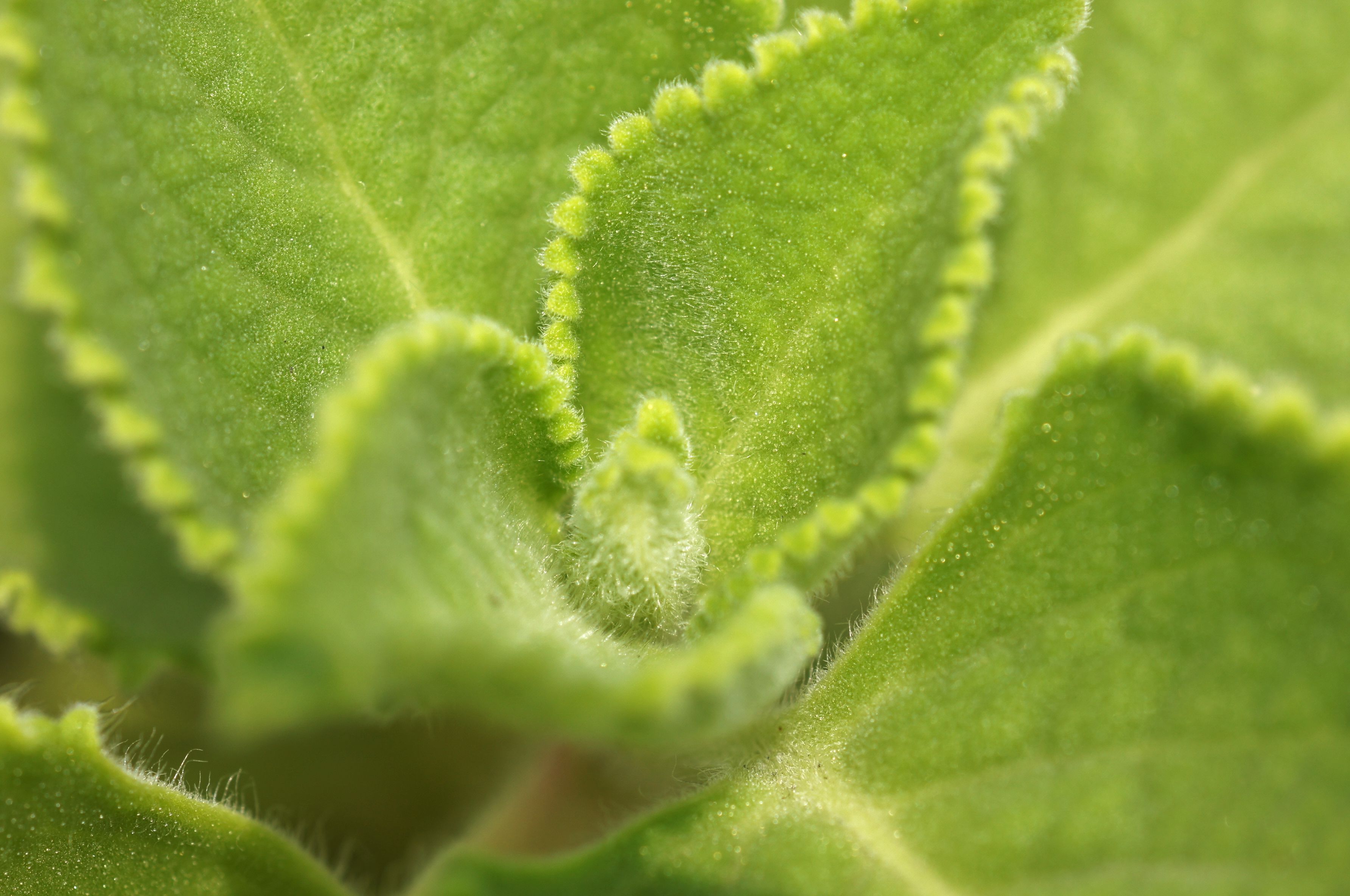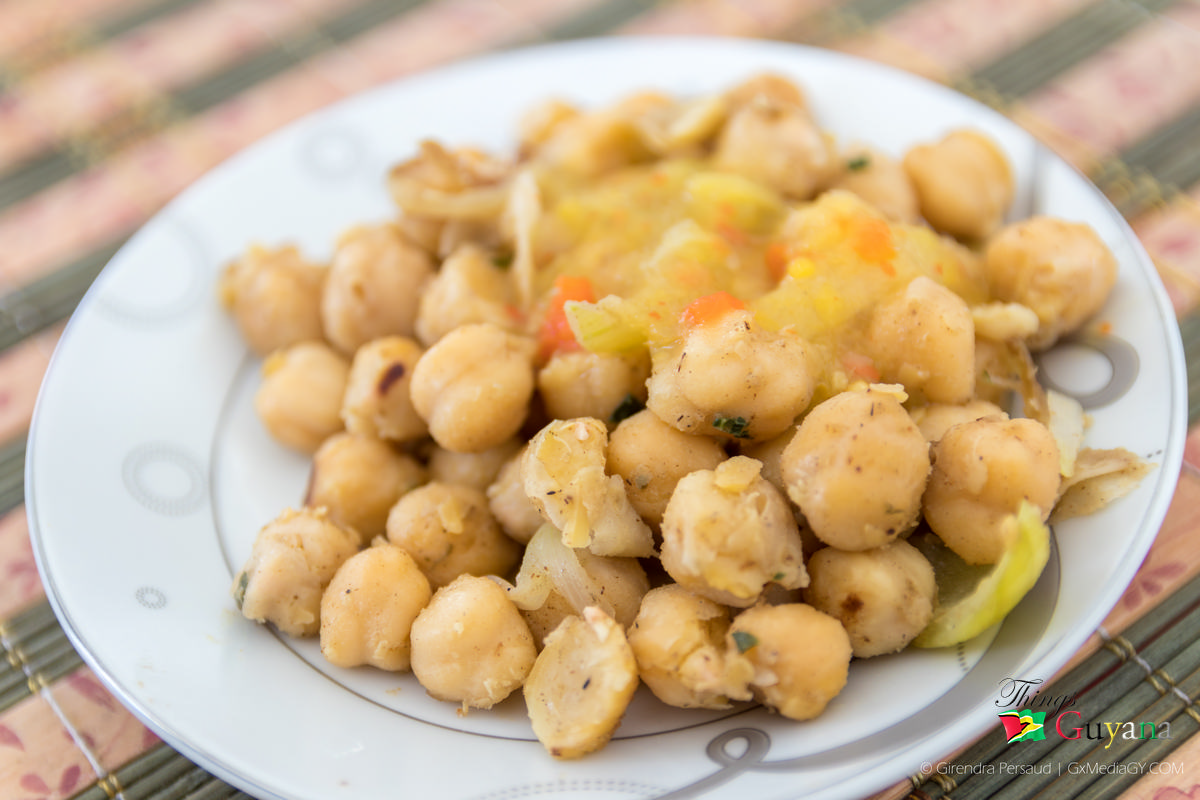Indian borage (Plectranthus amboinicus Benth), also known as Broad Leaf Thyme in Guyana is a medicinal plant used widely in Indian medicine and also around the world. It is a succulent, aromatic, perennial herb belonging to the Lamiaceae family, and its leaves are added to various foods to enhance its flavor.
In some countries around the world, it goes by various names such as Mexican mint, oregano, country borage, Spanish thyme, just to name a few. This amazing plant has many health benefits and medicinal purposes, which we’re going to touch on later in this article.
Where Did Broad Leaf Thyme Come From?
Broad leaf thyme plant is native to Southern and Eastern Africa, from South Africa (KwaZulu-Natal) and Swaziland to Angola and Mozambique and north to Kenya and Tanzania. From Southern Africa it would have been carried by Arabs and other traders to Arabia, India and Southeast Asia along the Indian Ocean maritime trade routes. The plant was later brought to Europe, and then from Spain to the Americas, hence the name Spanish thyme. Nowadays it is grown in several parts of the world (Guyana) due to its amazing look and health promoting benefits.
Description Of Broad Leaf Thyme
It is a succulent plant that is densely covered with short, fine hairs and have serrated edges. It grows up to 1 meter tall. When the round, fleshy stems grow too long, they bend over and trail on the ground. This causes roots to grow from the stem nodes. When brushed, it gives off a pungent aroma. Flowers can be violet, blue or white in color. They grow on a long stalk, in small groups. Fruits are small nutlets.
Here Are 10 Health Benefits Of Broad Leaf Thyme
- Cures Respiratory Issues – If you are suffering from a cold, a sore throat, congestion, a stuffy nose, or painful sinuses, you can chew on the leaves of broad leaf thyme or brew a tea from the leaves. The compounds contained in the herb act as a powerful expectorant to remove mucus and phlegm from your respiratory tracts and clear out your sinuses. This can also help to boost your immune system by avoiding bacteria or other pathogens from lodging and developing in your tracts.
- Treats fever – If you are suffering from a cold or flu, one of the common symptoms is a fever. Typically, you don’t start getting better until your fever “breaks”, as a sign that your immune system is making some headway. Broad leaf thyme is a sudorific, meaning that it motivates sweating, which also helps to clear out toxins through the skin and speed the recovery process.
- Reduces Stress and Anxiety – Although it is the lesser-known benefits of broad leaf thyme, some of the organic compounds and minerals found in this herb have been revealed to be mildly sedative in nature, so this herbal remedy, mostly in tea form, is often offered to people with high anxiety or chronic stress to encourage relaxation, peace of mind, and healthy, restful sleep.
- Skin Care – One of the most popular uses of broad leaf thyme is an effective skin treatment. From bug bites and stings to eczema and psoriasis, Indian borage possesses the anti-inflammatory compounds that can rapidly reduce redness and swelling, while also eliminating itchiness and irritation.
- Anti-cancer Potential – Research has discovered that the stem of this plant was rich in antioxidants and has the capability to scavenge free radicals. The extract of this plant helped inhibit proliferation of cancer cells and also, has displayed the potential for antiplatelet accumulation ability.
- Improves Kidney Health – Broad leaf thyme acts as a quite effective diuretic, which means that it can clean the body of toxins by stimulating urination. This also reduces the amount of excess salt, fat, and water in the body, keeping the kidneys and lymphatic system functioning smoothly.
- Irritable Bowel Syndrome – Since ancient time, broad leaf thyme was used traditionally to settle upset stomachs and relieve irritable bowel syndrome by regulating digestion and soothing stomach inflammation. Brewing tea from the leaves of Indian borage is the most effective way to take advantage of this health benefit.
- Beneficial For Females – Women will be glad to read that this plant reduces menstrual pains, delivery pains, and headaches. In India and some parts of Indonesia, the herb is given to lactating mothers to increase the milk flow.
- Reduce arthritis – Content of omega-6 fatty acids present in the leaf of broad leaf thyme is supposed to reduce arthritis. Additionally, athletes are also recommended to consume this leaf to prevent osteoporosis
- Improve vision – Broad leaf thyme is also used to improve one’s sight. The plant consists of vitamin A that can reduce oxidative stress in the eyes and prevent macular degeneration.
Culinary Uses Of Broad Leaf Thyme
- Aromatic leaves are used as a food additive or spice, flavoring meat, soups, fish, and local beer.
- Leaves are strongly flavored and used for stuffing of meat and poultry, beef, lamb and game.
- Herb is used as a substitute for oregano to mask the strong odors and flavors of fish, mutton, and goat.
- Herb is used as a substitute for oregano in the food trade and food labeled “oregano-flavor” may well contain this herb.
- Dried leaves are used to prepare marinade, stuffing or it can also be used as potherb.
- It adds punch to your dishes and can be used in condiments for sour soup and stews.
- It can be eaten raw with bread and butter, fried in batter, flavoring for wine, beer, salads and tea.
- Leaves can be chopped, made into flour balls and fried in oil.
Traditional Uses Of Broad Leaf Thyme
- The herb is used as a folk remedy for burns and bites, internally as a carminative and anti-asthma, and applied externally as an insect repellant.
- It is used medicinally in Brazil for the treatment of skin ulcerations caused by Leishmania braziliensis.
- Juice of the leaves is used to treat skin allergies in India.
- Leaves have many traditional medicinal uses for the treatment of coughs, sore throats and nasal congestion, but also for a range of other problems such as infections, rheumatism and flatulence.
- It is also used to treat malarial fever, hepatopathy, renal and vesical calculi, cough, chronic asthma, hiccup, bronchitis, helminthiasis and convulsions.
- Indian traditional medicinal uses the herb for skin ulcerations, scorpion bite, skin allergy, wounds, diarrhea, with emphasis on the leaves being used as a hepatic-protective and to promote liver health.
- It is a traditional food used in soup to stimulate lactation for the month or so following childbirth in Indonesia.
- Juice from the leaves is sweetened and then given to children as protection from colds; and leaves are applied to the lips in Cambodia.
- Leaves are taken internally in the treatment of a range of digestive problems such as dyspepsia, indigestion, diarrhea and wind.
- It is also reported to relieve kidney troubles, treat vaginal discharges and is drunk after childbirth.
- Applied externally, the leaves are used to treat headaches, inflammations, skin allergies, wounds, burns, sores and ulcers.
- When rubbed on the skin, they will quickly bring relief to bites and stings.
- Seed oil is a treatment for acute edematous otitis acute in Polynesia.
- In India its leaves are rubbed onto the eyes to alleviate conjunctivitis.
- The plant is used to treat snakebites.
- The plant is anti-inflammatory and is used for treating stiff neck and backache.
- For ear aches (otalgia) pure fresh juice is poured into the ear and keeps for 10 minutes.
- Juice of leaves mixed with sugar acts as a powerful aromatic carminative, given in colic and
- In Malaysia, bruised leaves are applied to burns and their poultice on centipede and scorpion-bites.
- Leaf juice heals chapped lips and in java it is used to treat cracks at the corners of the mouth.
Broad Leaf Thyme
It is a succulent plant with fine hairs on its leaves that is native to Southern and Eastern Africa and is found worldwide. The leaves are ideal for flavoring meat and vegetable dishes, while the ground up dried leaves can be added to soups, stews, and other meals as an herb. It has many health benefits and medicinal purposes.
Article References:
- https://www.healthbenefitstimes.com/indian-borage/
- https://www.organicfacts.net/health-benefits/herbs-and-spices/indian-borage-mexican-mint.html
- https://naturallydaily.com/mexican-mint-benefits/
- https://healthylife.werindia.com/your-road-to-healthy-life/indian-borage-coleus-aromaticus-plant
- https://remedygrove.com/remedies/Indian-Borage







